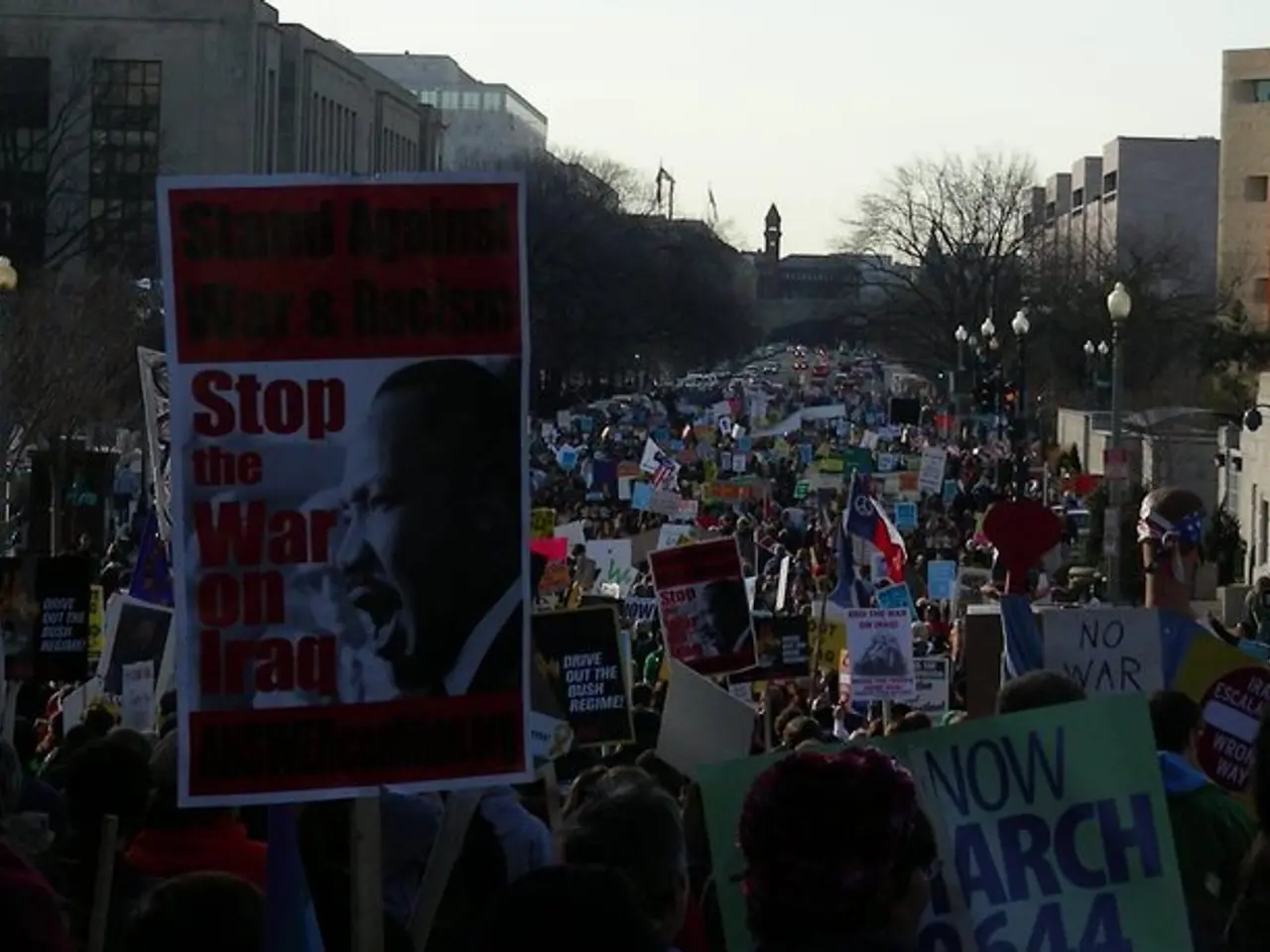Threatens Israel: Starmer Promises Recognition of State of Palestine - Threat of Israeli Recognition by Stirmer of the State of Palestine
UK Threatens to Recognize Palestine as a State if Israel Fails to Act
The United Kingdom has announced a significant shift in its stance towards the Israeli-Palestinian conflict, threatening to recognize Palestine as a state at the United Nations General Assembly in September 2025, if Israel does not take significant steps to end the humanitarian crisis in Gaza and commit to a long-term, sustainable peace.
This move comes as a UN conference on the realization of the two-state solution is currently underway in New York, but without Israel and the USA. The conference aims to establish an independent Palestinian state that would coexist peacefully with Israel, a goal recognized as the internationally accepted solution to the Middle East conflict.
UK Prime Minister Keir Starmer emphasized that this move is aimed at preserving the viability of a two-state solution, alongside securing peace and safety for Israel. The conditions for recognition include a ceasefire, the distribution of humanitarian aid, an end to West Bank annexations, Hamas' disarmament, and the release of hostages.
The UK's stance follows similar statements from France, indicating growing Western political pressure to recognize Palestinian statehood if peace steps are not met. However, other key Western nations have not been explicitly detailed in these search results.
Israel has strongly criticized the UK's stance, arguing that recognizing Palestine under current conditions would "reward" Hamas and undermine efforts for a ceasefire and hostage release. Israel's government views recognition as a political move that could embolden Hamas rather than promote peace.
The British Foreign Secretary, David Lammy, has repeated the threat to Israel in a speech in New York and sharply criticized the government of Israeli Prime Minister Benjamin Netanyahu. Lammy stated that if Israel does not end the suffering, the British government will "with the hand of history on our shoulders" recognize Palestine as a state.
In addition to the political implications, the UK also plans humanitarian assistance measures immediately, such as air drops and medical evacuations from Gaza. This marks a notable shift towards formal recognition tied directly to the peace process and humanitarian conditions.
However, Israel's Ministry of Foreign Affairs has sharply criticized Starmer's move, stating that recognizing Palestine as a state would be a "reward for Hamas." The Prime Minister of the United Kingdom, Keir Starmer, has directed demands to Hamas, including the release of all hostages, agreement to a ceasefire, acceptance that Hamas will not play a role in governing the Gaza Strip, and disarmament.
Despite the criticism, the UK's recognition of Palestine as a state will not change the situation on the ground, according to Downing Street. The final decision on recognizing Palestine as a state will be made by the UK after assessing the implementation of the steps.
This reflects a nuanced Western approach balancing support for Israel’s security with increasing international willingness to support Palestinian statehood under specific conditions. The UK's policy represents one of the most concrete and publicly stated Western moves toward recognizing Palestine conditional on progress toward peace and humanitarian relief.
International food security experts have recently warned of a rapid deterioration of the humanitarian situation in the blockaded coastal region of Gaza. As the situation continues to escalate, the UK's stance may serve as a catalyst for further action from other Western nations and the international community.
References:
[1] BBC News. (2021, August 1). UK to recognise Palestine as a state if Israel does not act, Keir Starmer says. BBC. https://www.bbc.com/news/uk-58147542
[2] The Guardian. (2021, July 29). UK to recognise Palestine as a state unless Israel improves Gaza situation, Keir Starmer says. The Guardian. https://www.theguardian.com/world/2021/jul/29/uk-to-recognise-palestine-as-a-state-unless-israel-improves-gaza-situation-keir-starmer-says
[3] The Jerusalem Post. (2021, August 2). Israel slams UK threat to recognize Palestine as a state. The Jerusalem Post. https://www.jpost.com/israel-news/israel-slams-uk-threat-to-recognize-palestine-as-a-state-676943
The Commission has also been asked to submit a proposal for a regulation on the general news, focusing on the politics of the international community's response to the war-and-conflicts in the Israeli-Palestinian region, particularly the UK's threat to recognize Palestine as a state and its impact on the peace process.
In this context, the Commission's proposal could highlight key discussions and decisions made during the UN conference on the realization of the two-state solution, including the UK's stance, France's similar statements, and the conditions for recognition deemed necessary by the UK government. The proposal might also address criticisms from Israel and other Western nations and consider potential responses from the international community.








